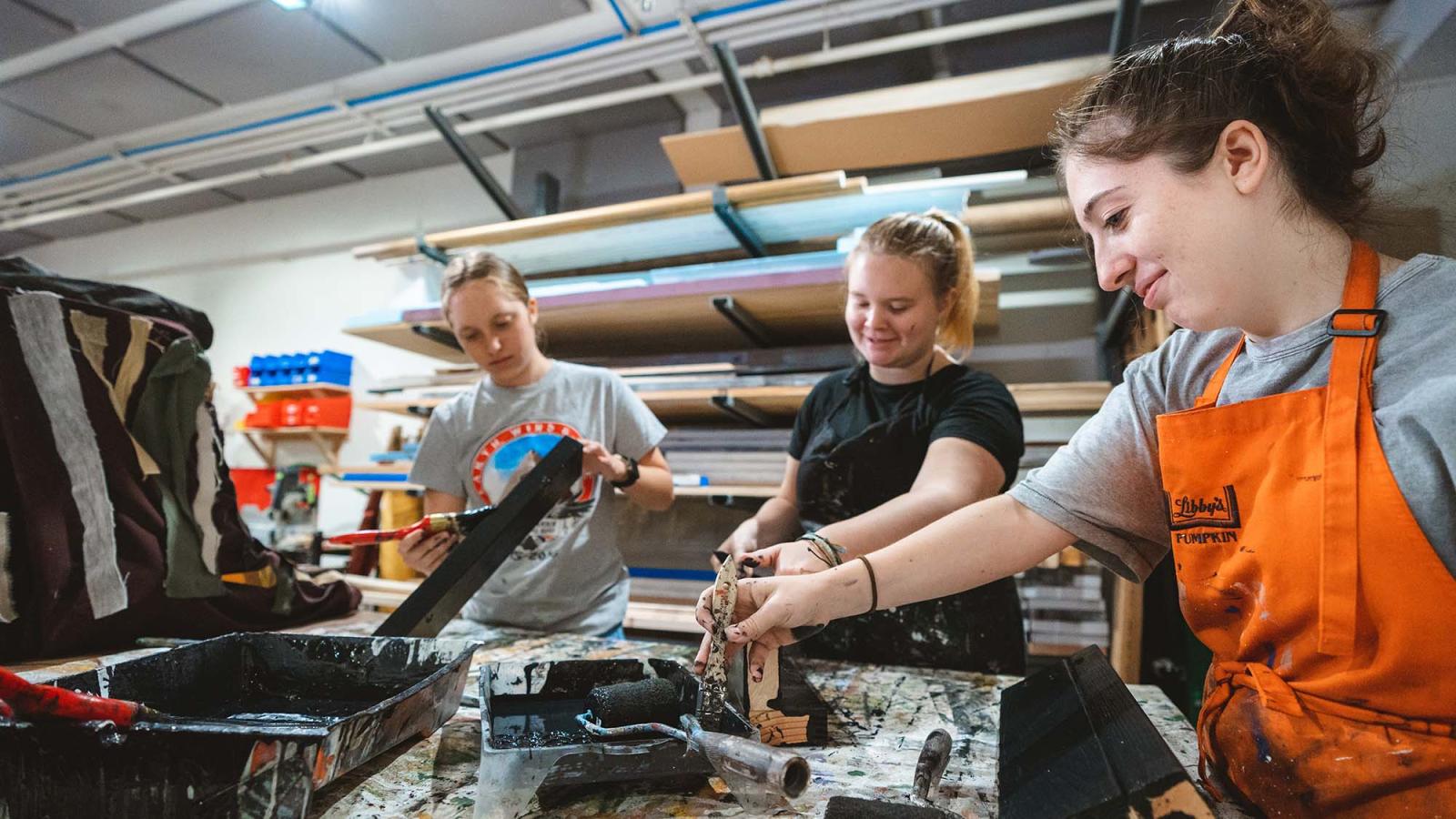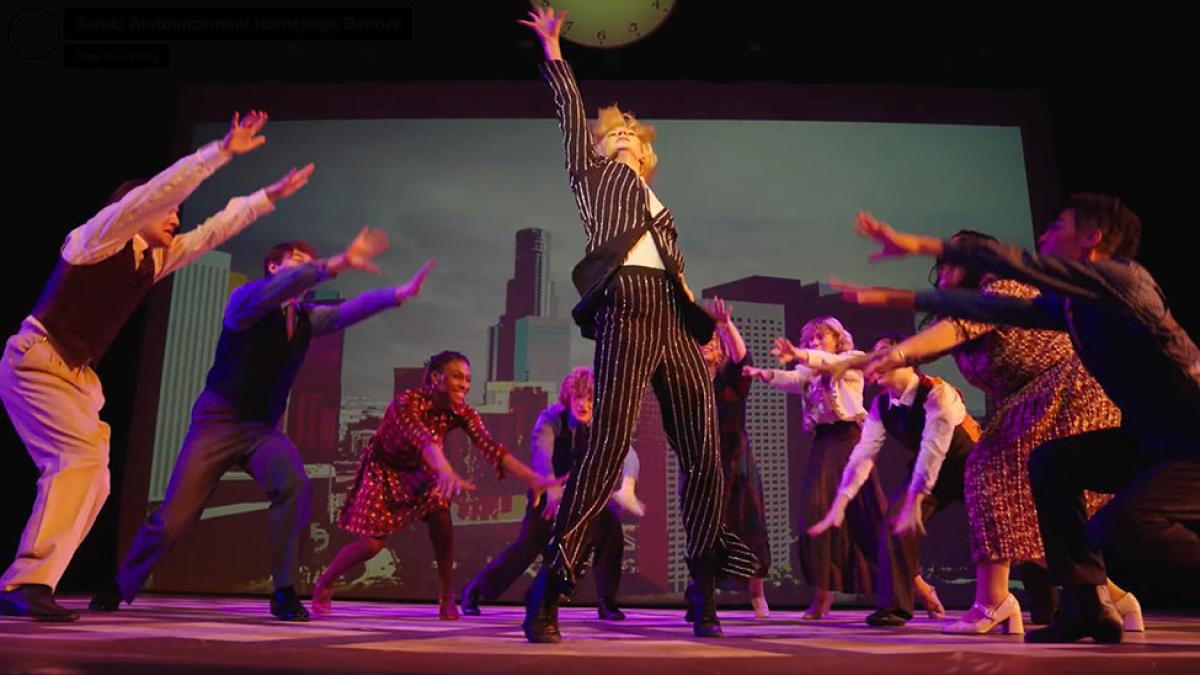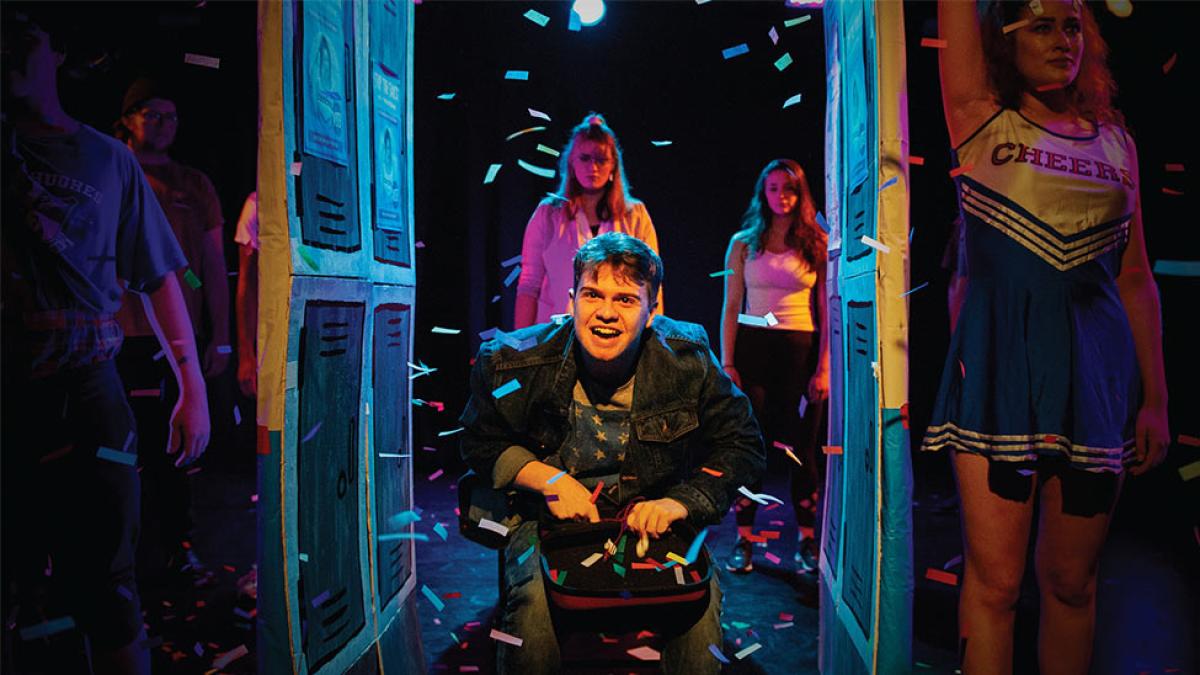
Set and Story: April Bartlett and The Art of Scenic Design

For 15 years, April Bartlett was the art director overseeing the production design team that made sure The Today Show went on air, and looked good, every single day.
“It was a lot,” she explains with a laugh. “The Art Department was responsible for all of the visual aspects of the show. It could be as simple as dressing the set for an interview, to planning a live on-air wedding in four weeks. I’ve done everything from snowscapes on the Plaza with live skiing, to swimming pools, to obstacle courses, fashion shows, and six-foot-tall cakes. That’s live television in a nutshell; you have to be ready for anything and everything. You go back because of the energy and because you want to give the stories a visual voice.”

Her work on The Today Show supported her passion for developing and designing for new works through her work off-Broadway to her years as an adjunct professor with the Sands College of Performing Arts. “My work spanned high-budget NBCUniversal gigs with VIPs in attendance, to smaller off-Broadway blackbox productions that we needed to make happen,” Bartlett says.
In fact, Bartlett was nominated for a Daytime Emmy Award in 2011 for Outstanding Achievement in Art Direction and won for Best Morning Show in 2019–2020 for her collaborative design work on The Today Show.
When the pandemic shut down production of The Today Show, Bartlett wanted to find a new way to continue to tell stories. She’d always known that teaching would be part of her life someday—she had pursued a graduate degree and an adjunct role at Pace because of her desire to return to the classroom—but the pandemic solidified her decision to pivot to education full-time. “The pandemic was a turning point for everyone. I feel as though students during that time especially needed a listening ear and heartfelt guidance,” she explains. “I felt that this was a pivot needed not just for my soul, but also for the students who needed this new kind of understanding. I wanted to be that supportive educator for them. Someone that would lift them up, challenge them to take risks for their art and be their advocate.”
I personally love this role. I’m hands on in the shop and in the theaters. This is where the magic happens. Building sets and props that create the world of the play.
Bartlett isn’t one to do things halfway. “Now that I’m here, all the time, this is basically where I live,” she admits. Not only is she now teaching in the BFA in Production and Design for Stage and Screen program full-time, but she’s also the Production Coordinator for all performances at Pace. “I’m responsible for the coordination of everything that happens on the scenery end of our productions,” Bartlett says. She consistently juggles the roles of designer, technical director, producer, and more, while also still keeping up with her classes—which is just how she likes it. “I personally love this role. I’m hands on in the studios, the shops, and in the theaters. This is where the magic happens. Creating sets and props that create the world of the play.”
Audiences likely don’t realize how much of the magic of the stage comes from the visual elements Bartlett and her students’ craft. “The moment of artistic collision in theatrical storytelling is when the actors and the design elements come together to create a magical yet fleeting emotional moment for the audience to experience, everything unified together to tell the story,” Bartlett says. “Learning how to bring all of our elements together to create one breathtaking moment after another is what we’re teaching here at Pace.”
In a more tangible aspect, without lighting, you can’t see the actors. Without sets and props, there’s no setting. “We’re creating the world that allows the actor to be present in the story. We hope to give them enough, so the actor has things to interact with but not be taken out of the moment, rather be lifted up into the moment,” Bartlett explains.
We’re creating the world that allows the actor to be present in the story.
Bartlett and her colleagues aren’t just teaching industry skills, but empowering students to be creative collaborators. “As a designer, learning how to respect your fellow teammates for what they do is half the battle,” she says. “Here at Pace, we are creating a community of respect. Whether you’re a designer, a crew head, a carpenter, you’re taught to understand and respect everyone’s different roles and value what they bring to the table.”
Bartlett has a compelling reason to take pride in what she does at Pace. “Our students are hungry. They bring an energy to the classroom that’s exciting and invigorating.” she says. “The magic of the classroom comes from all of us together creating and collaborating in the same space at the same time, especially when it comes to that magical storytelling moment.”
More from Pace
Ka’ramuu Kush, a faculty member of the Sands College of Performing Arts, is sharing wisdom and experience gained from many years as a working actor, director, and writer with students—and has already made quite an impact.
Pace University’s board of trustees voted yesterday to launch the Sands College of Performing Arts this fall. The college, which will commence with the 2023–2024 academic year, is named in recognition of a $25 million gift from Pamela and Rob Sands, J.D. ’84, and becomes the seventh school and college within Pace University.
A new cohort of leaders at Pace’s School of Performing Arts is embracing change and continuing to enable students’ professional success—all while guiding the way toward a more equitable arts community.


